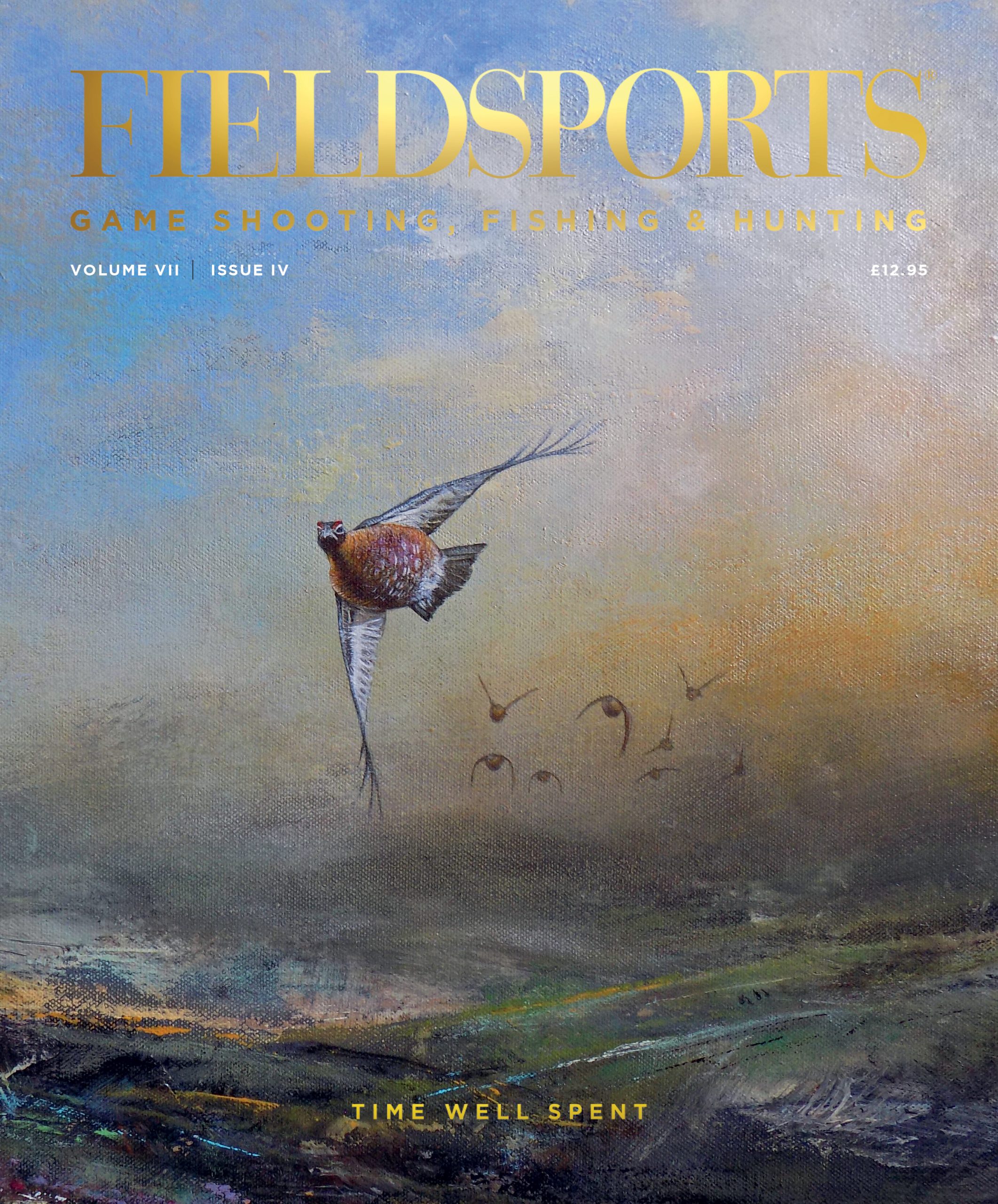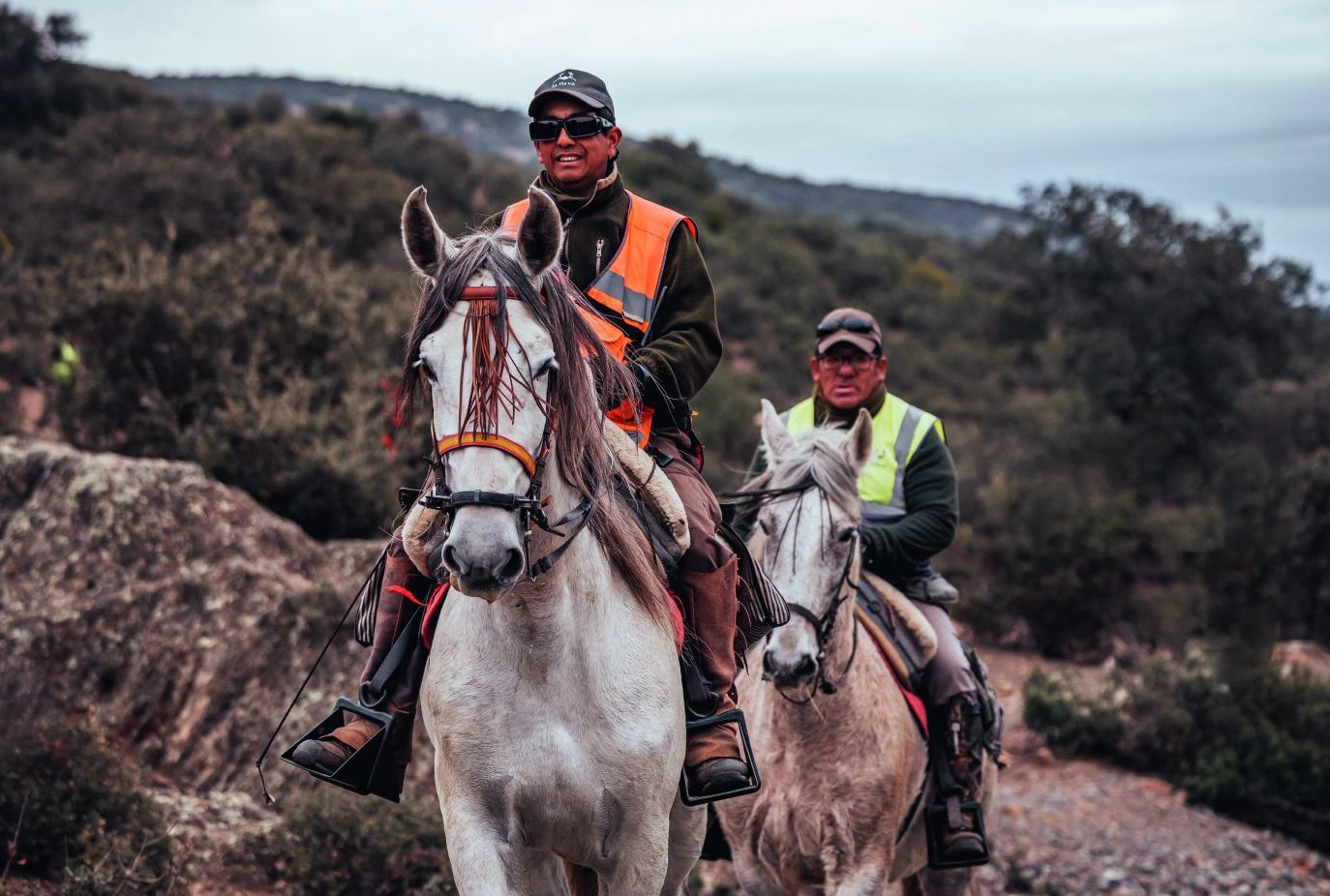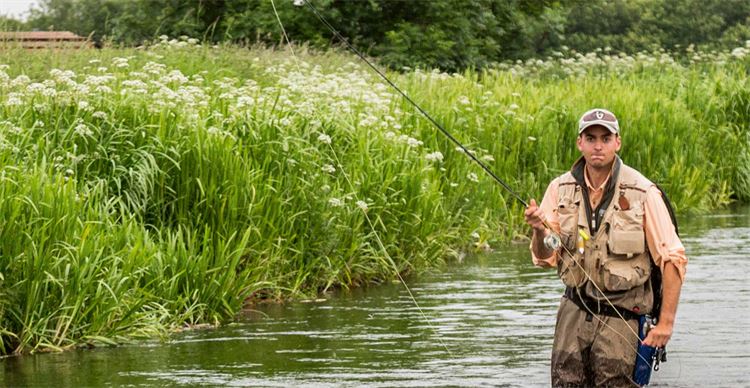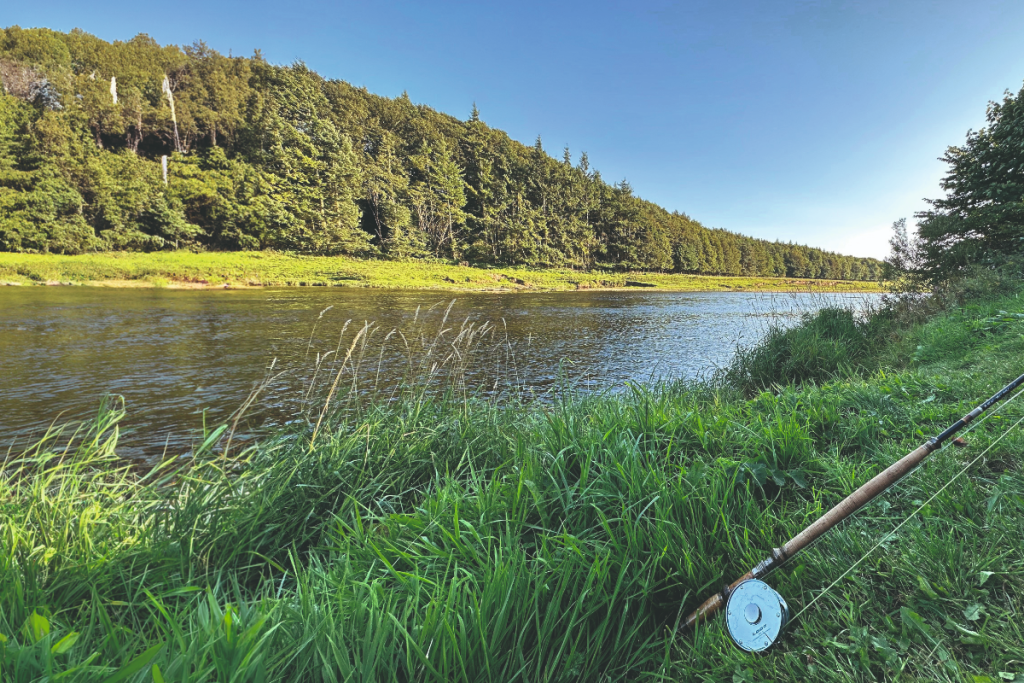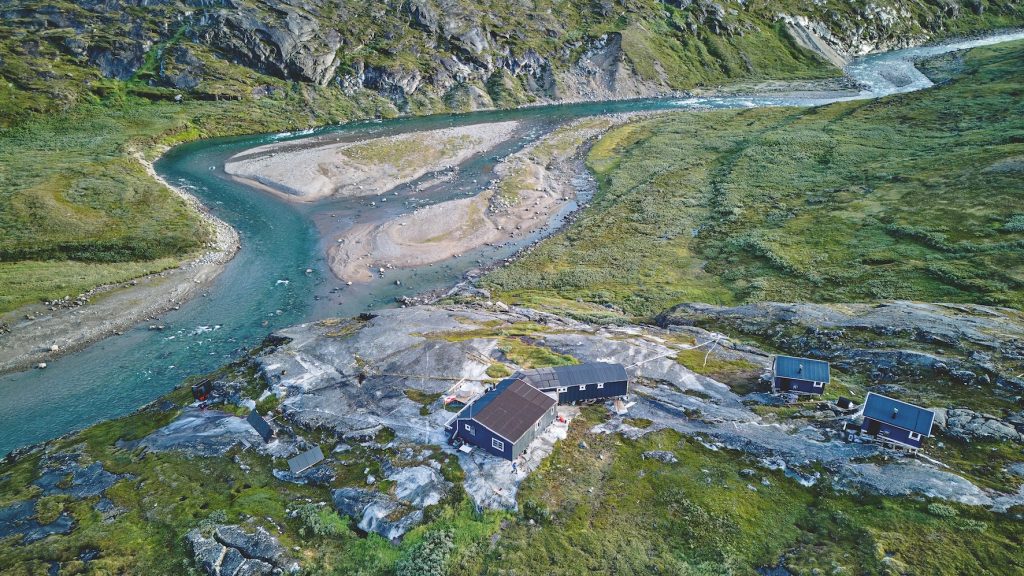The countdown is on for The British Shooting Show – book tickets online today and save on gate price!
Big fish fever
Marcus Janssen talks us through the symptoms of Big Fish Fever.
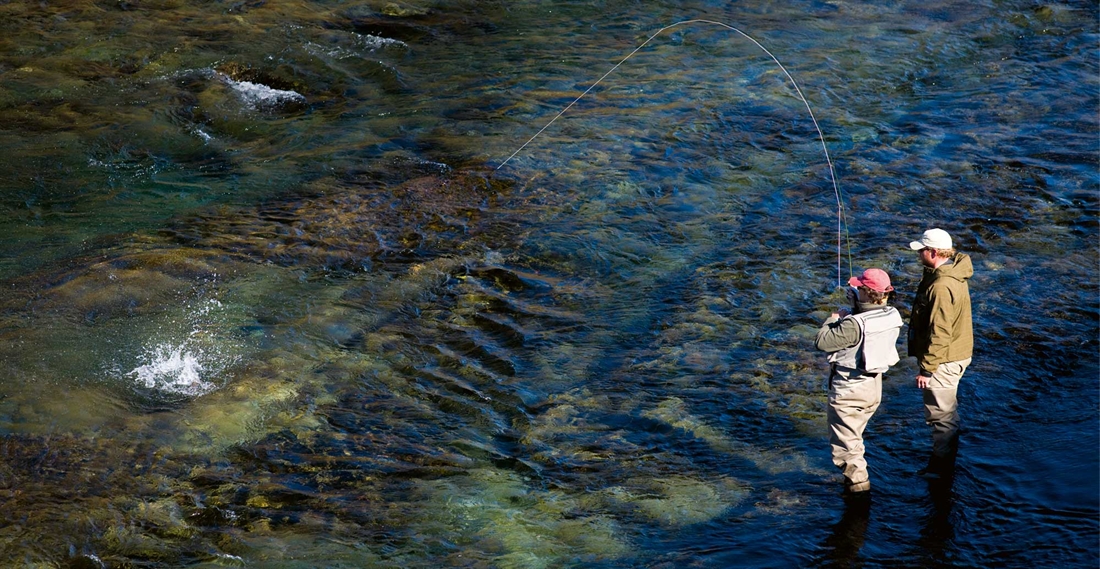
At one time or another, all truly dedicated fly fishers will find themselves overcome by that affliction known as ‘big fish fever’. Normally speaking, the symptoms last for no more than a few minutes, until either the opportunity presented by the invariable leviathan is capitalised on with dexterity and panache, or squandered in a bird’s nest of leader, fly and reverberating rod tip, the more likely of the two outcomes.
The feverish symptoms, which in severe cases can manifest into heart palpitations, unstable limbs, shortness of breath and even blurred vision, are then replaced by either utter elation and hysteria as rod is bent to the cork or, rather more likely, a short-lived bout of severe depression as the canny fish disappears upstream with a puff of disturbed bed substrate.
Big fish fever doesn’t discriminate, believe me. Even the biggest of big shots can fall to pieces in the presence of a substantial fish. The opportunity that they have been dreaming of for years, praying to seven different gods for, finally presents itself in a moment that is instantly characterised by an angler with a look of madness about him and false casts with the tempo of a spaniel’s tail on the opening day of the shooting season.
In an instant, the image they had of a textbook Lefty-Kreh-presentation is blown out the water by the prevailing north-easterly gale as their fly is deeply embedded into the very highest branch of the willow that, in their delirium, they had failed to notice. Said angler is left in a world devoid of sound, smell, colour and meaning.
We’ve all been there, and we all have bitter memories that we’d rather forget of missed opportunities and severely blundered attempts. That such a simple organism with a brain a fraction the size of ours can have such an overwhelming effect on our emotional and psychological equilibrium makes you wonder, doesn’t it? What is it about big fish that causes our hands to tremble, our casting to go awry and our heart to race?
Of course, it all comes down to what constitutes a big fish; at the end of the day, my big fish might be your live bait. If you happen to be an Alta veteran, the term would only apply to creatures that I would put into the same category as the Loch Ness Monster. However, if you are more accustomed to chasing wild trout from the brook behind your house, a brownie of 2lb might constitute the fish of a lifetime. It’s all about perspective.
I clearly recall the first time that I was overcome by a severe bout of big fish fever. My brother and I had entered into a local large-mouthed bass fishing competition in South Africa. The prize for the biggest fish was a new Daiwa Osprey fly rod, just like the one dad had. I had my sights firmly set on nabbing such a lucrative reward, and I vividly recall my wild daydreams about seeing my photograph plastered across giant billboards in town, the winning fish held prominently in the foreground. Come hell or high water, I was going to forge my place in the annals of fishing history.
The competition got off to a pretty decent start, actually, as bass after bass was frantically hauled in. Most weighed less than half a pound and were brought skating across the surface in my frenetic pursuit of Daddy Bass. As the day wore on, the morning’s action gradually ground to a halt. Pessimism and despondency began to take its toll as it dawned on me that the leviathan of my dreams may have eluded me. To make matters worse, the big brother had a potential winner proudly strung up by its gills on a nearby fence for fellow rivals to admire as they walked by. Staring into the jaws of defeat, I spied a small pond a few hundred yards down the valley no bigger than a garden pond, and nearly completely choked with pond weed. It represented a last resort.
With the light rapidly fading, it was a race against time, and in hindsight, I desperately wish I had paid more attention to Wolf Avni’s lecture on the importance of well-tied knots. The gargantuan surface popper that I tied onto the end of my leader was done so in somewhat of a hurry – a mistake I will always regret.
I was most pleased with my handiwork though, as the popper landed on the surface of the pond akin to an Egyptian goose full of No.3s. I only had time to give the enormous lure one violent tug before it was smashed from the surface by what can only be described as the biggest bass to have ever lived. It was truly enormous.
In one short, sharp shrift, the firmly hooked competition-winner unravelled my poorly tied knot as I experienced my first long-range release. I was left utterly and truly distraught, swept up and enveloped by a wave of nausea far worse than anything I had ever experienced before. In great big raking and tear-filled sobs, the situation was then made far worse as the very annoyed monster then launched itself out of the water no less than half a dozen times, finally succeeding in its mission to free itself from the bloody great popper, which now sat lifeless on the surface of the pond. Time stood still, and it was a long time before I recovered enough energy to walk back up the hill and tell my epic story to a very sceptical and patronisingly dismissive audience.
Sadly, that was not the last time that a bout of big fish fever ended in disaster for me. There have, however, been occasions when, despite the clumsy-handed ineptitude that is synonymous with big fish fever, things have resulted not in tears or depression, but in euphoric jubilation – few and far between instances when the disappointment and upheaval of previous blunders all of a sudden seem worthwhile. One such instance stands head and shoulders above the rest…
The 737’s wheels touched down into puddles on the tarmac at Aberdeen airport. “What do you think of this weather? We sure are in Aberdeen,” was Sally’s response to the drizzly, miserable, misty gloom which obscured the wingtips from view. All I could think about was the river; “perfect” was my reply.
The Scottish Avon is the legendary River Spey’s largest tributary. Heavily dependent on regular rainfall, it is at its absolute prime just after a large spate as the water level begins to drop and the peaty sediment load begins to clear. Add an overcast sky to the equation, throw in a light drizzle, and an air temperature between 16 and 22°C, and you have conditions which may only occur once a year, if you’re lucky.
Well, on that Thursday morning, as I stood in the dark outside the kitchen door with my cup of coffee, it quite simply couldn’t have felt better. Jock, my Jack Russell, gave me a quizzical look as I hurriedly pulled on my waders whilst explaining to him that the barometric pressure, air temperature, cloud cover, water temperature, water level, sediment load and Lady Luck were all poised in exquisite balance with one another, and that if I didn’t have a fish by breakfast time I’d eat my own deerstalker. With that, Jock and his sister Bella both bounded into the truck in anticipation of an afternoon of hat eating, one of Jock’s favourite pastimes.
With trembling fingers, I checked my leader and retied on a size 12 Cascade. With a light mist lying upon the water’s surface, I remember thinking to myself that it seemed a shame that I’d have to disrupt the perfection that was the scene which lay before me. A soft golden light filtered between birch, beech and oak leaves on the near bank, and gave the cool mist a feeling of warmth. As I waded across the neck of Boat Pool towards the far bank, I noticed that a hatch of Grannom sedge had begun as they fluttered over my head in the still morning air.
I slowly made my way through the trees on the far bank, ensuring that I stayed obscured behind a leafy screen until I reached the neck of the fast riffle that I had opted to fish first. Once in position, I lengthened out my cast until my fly was lapping the far bank. One upstream mend, and the fly was swinging round and fishing through the run beautifully. Bar actually slapping me in the face with a salmon, things just couldn’t have felt fishier.
The take was uncharacteristically gentle for this type of fast, riffly water, and at first I suspected that I had hooked a little brown trout parr. My suspicions were quickly dispelled as 100 yards of line and backing was ripped from my reel in a matter of seconds. ‘Definitely a good fish’ I thought to myself as the first characteristic twinges of big fish fever set in – clammy palms, a shortness of breath and an inability to think clearly.
Due to low, overhanging branches on the near bank, it was impossible for me to back out of the river and follow the fish downstream. Instead, I had to wade deeper, out and beyond the extent of the branches before heading downstream in water up to the absolute limit of my chest waders. Fortunately, the fish stayed within the run, spending the following five minutes or so skulking under the far bank. After one last, blistering run into the tail of the pool, the fish began to tire as the waiting game began and my nerves became more and more jaded with horrific thoughts of parted leaders and straightened hooks.
Twenty minutes later saw me sat in the river, cradling one of nature’s true miracles: 18lb of gleaming Salmo salar. With a maniacal grin on my face, I couldn’t help but think of a quote by Orri Vigfússon. “There is a lesser and greater reward in the catching of salmon; one relates to the mastery of skill, but the greater lies in cherishing the fish and knowing humility in the face of its saga”. Indeed here is a fish that has travelled over 4,000km, returned to its natal river and come so close to ending its journey. Would it not seem cold-hearted and cruel to end its epic journey now? After a few quick photos, and three or four minutes spent reviving the fish until its strength returned, it slipped back into the fast, cold run and disappeared.
Don’t get me wrong here, I’m by no means suggesting that any form of fever is ever a good or vaguely pleasant thing, but the sense of relief that one feels when the fever passes can certainly be described as pleasurable. When I was at about the age when one is taught the first nuances of social etiquette, I was struck down with a severe case of tick bite fever, quite possibly as a result of spending too much time with our Basset Hound in its basket. When, after three days of appalling delirium, cold sweats, piranha-infested tepid baths, aches, pains and chattering teeth, I woke to find that I had come through the worst of it, the sense of relief bordered on euphoria. Akin to removing a pair of unbearably tight and uncomfortable shoes after a long day on your feet, it almost seemed as though it had been worth the pain.
Nearly 20 years later, and as I sat on the bank of the Avon with my rod leant against a tree, I knew that I had just come through a bout of big fish fever, and this time, I had won.
Related Articles
Get the latest news delivered direct to your door
Subscribe to Fieldsports Journal
Elevate your experience in the field with a subscription to Fieldsports Journal, the premium publication for passionate country sports enthusiasts. This bi-monthly journal delivers unparalleled coverage of game shooting, fishing and big game across the UK and beyond.
Each issue offers a stunning collection of in-depth features, expert opinions and world-class photography, all presented in a timeless yet contemporary design.
Save 10% on shop price when you subscribe, with a choice of packages that work for you. Choose from Print & Digital or Digital only with each journal delivered directly to your door or via the app every other month, plus access to past issues with the digital back issue library.
